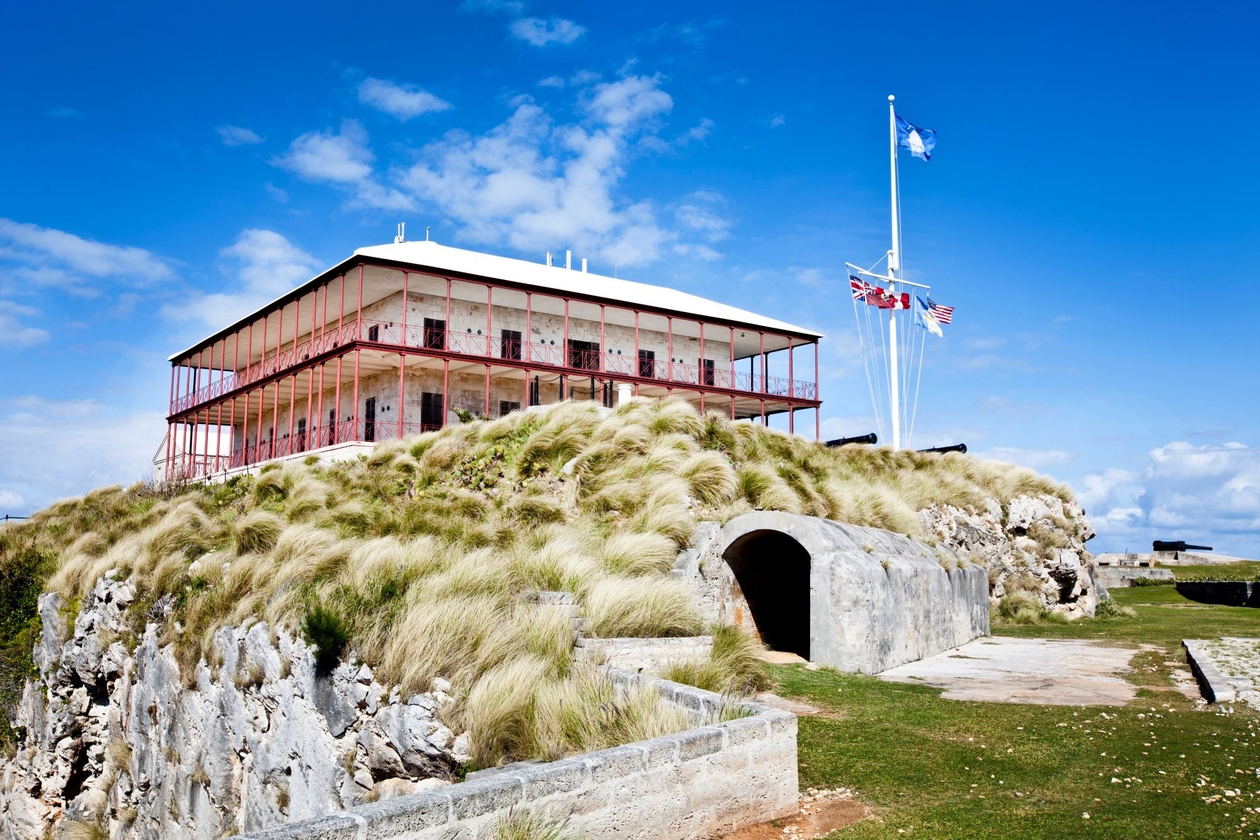Low Carbon partnership to power National Museum of Bermuda
54.32kW solar installation to support the island’s energy needs following the America’s Cup
London, UK – 1 February 2017 – Low Carbon, the UK-based renewable energy investment company and official renewable energy partner to Land Rover BAR, today announces it will help fund the installation of solar panels at the National Museum of Bermuda (NMB) in the Royal Naval Dockyard. The installation is expected to generate more than 93,600kWh of clean energy per year, contributing to a significant portion of the museum’s energy consumption needs and saving 43 tonnes of CO2 per year.
The project will not only contribute to the local economy but it will leave an important legacy to the museum and island in the ongoing battle to mitigate the negative effects of climate change. An immediate aim of the project will be to help offset the carbon footprint generated by the Land Rover BAR sailing team whilst competing in Bermuda during the America’s Cup 2017. When combined with Low Carbon’s previously connected solar installation at the sailing team’s base in Portsmouth (UK), both solar projects will save more than 100 tonnes of CO2 each year.
The ground mount solar project will be funded by Low Carbon as well as a generous private donation from The Stempel Foundation, long-term supporters of the museum. The solar installation will be made up of 194 high performance SolarWorld bifacial glass-on-glass monocrystalline silicon panels. The chosen solar panels are designed to harness the sunlight from the front and back of the panels and are guaranteed to provide a minimum of 30 years of energy production resulting in 1,220 tonnes of CO2 not being released into the atmosphere.
The solar installation has been specifically designed to withstand Bermuda’s corrosive, humid and hurricane prone environment. The entire project will be completed by renewable energy company BE Solar, a 100% Bermudian team. The 3,501 sq. ft. solar installation will be installed along the NMB’s Northwest Rampart that connects the old Casemate Barracks to the Commissioner’s House and is scheduled to be completed in the first quarter of 2017.
Roy Bedlow, chief executive at Low Carbon comments on the news, “We continue to support Land Rover BAR as a sustainable sports team, and applaud their goal to minimise their impact on the precious resources of Bermuda. By partnering with them on this project, we will be aiming to produce enough energy to match and even exceed the amount that the team use whilst on the island. At the same time, we’ll be leaving an important sustainable legacy for Bermuda, as our project will keep producing renewable energy long after the team has left. It is exciting to be working with Land Rover BAR, local businesses and the museum to apply solar energy in an effective, targeted way that will benefit the people of Bermuda for years to come”.
Team Principal and Skipper for Land Rover BAR, Sir Ben Ainslie commented, “We have set our goal to be the most sustainable sports team, and feel it is important for our team to have a minimum impact on Bermuda and leave a legacy behind us when we left Bermuda. The solar project is one of the most important projects to be delivered by our partners – although our goal is to take the Cup home, we want to leave plenty behind us that will benefit the island and its people”.
Chairman of National Museum of Bermuda, James Hallett said, “The National Museum is delighted to be the beneficiary of this Land Rover BAR legacy project and would like to thank Low Carbon and The Stempel Foundation for helping us to become more sustainable in terms of reducing our carbon footprint and operational costs. The solar panels will reduce our electricity bills by 20% allowing the Museum to concentrate its efforts on cultural heritage preservation. Also a major focus of our Museum is Bermuda’s maritime heritage, which makes this gift particularly relevant”.
Travis Burland, Sales & Engineering Director of BE Solar explained “This is an exciting legacy project for Bermuda and we are extremely proud to have been awarded this opportunity. Our team is looking forward to installing the most advanced solar installation in Bermuda, which will help the National Museum of Bermuda reduce their operating costs and offset their environmental impact well beyond the year 2047.”
For more information on the National Museum of Bermuda, please visit http://nmb.bm/visit/.
-ENDS-

